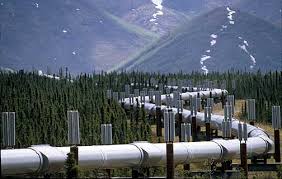Greece appears headed towards seeking closer energy-related ties with Russia, if early comments delivered by the new Syriza-led coalition government’s Production Reconstruction, Environment and Energy Minister Panayiotis Lafazanis – head of the leftist party’s wing of euro sceptics, dubbed the Left Platform – may serve as an indicator.
During yesterday’s ministry handover procedures, Lafazanis, in his comments, made clear the newly appointed Greek government’s intention to strive for closer ties with Russia as part of the country’s revised energy policy.
Also hinting at such a development, the Syriza-led government has already voiced strong objections to new EU plans for further sanctions on Russia over Ukraine. Commenting on the issue, newly appointed Finance Minister Yiannis Varoufakis noted that Greece – both previous and new governments – was never asked about the Russia sanctions, describing the development as a “question of respect for our national sovereignty”.
Although the new government’s overall plans remain unclear following last Sunday’s snap elections, other officials at the new Production Reconstruction, Environment and Energy Ministry have already noted that an effort will be made for a change of course on Greece’s energy-sector matters.
The country’s new political leadership already appears eager to engage Greece in Russia’s new plans for the establishment of a gas hub along Greek-Turkish borders, following the apparent debacle of South Stream.
One official told energypress that the newly elected Greek government will promote the idea of establishing Greek territory as a transit zone for Russian plans to transmit natural gas to Turkey as part of a route to then head for Europe. Also, the official noted that a thought of incorporating the TAP (Trans Adriatic Pipeline) route, already under construction, into this network, was also being contemplated. In such a case, the TAP pipeline would carry both Azeri and Russian natural gas to Europe.
However, it should be pointed out that, for the time being, these plans remain highly theoretical. No official requests have been forwarded to either the TAP consortium or, more importantly, the European Commission. The EU executive body has already offered its approval to the current TAP plan, to carry Azeri natural gas to Europe, as a project that will contribute to Europe’s reduced energy dependence on Russia.
The underlying objective of the plan to possibly utilize the TAP pipeline for Russian gas as well would be for Greece to request a further reduction on gas prices from Gazprom, which would then be passed on to Greek households and industry.





